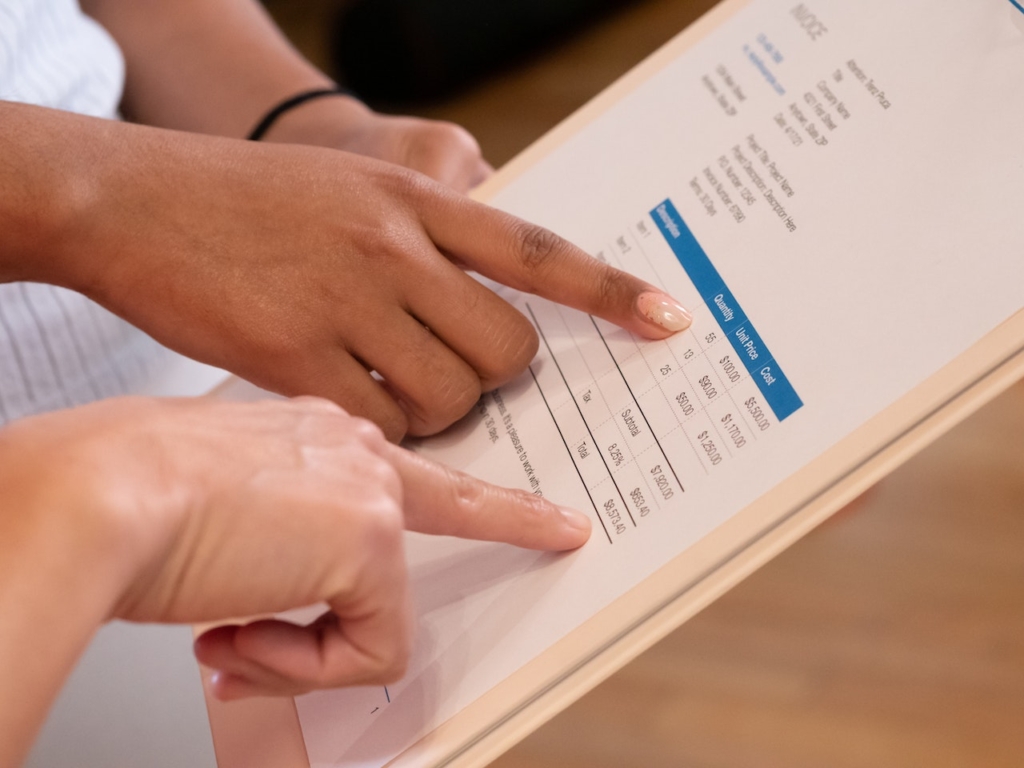For every business owner, disputes with customers and suppliers drain your cash flow. Conflicts often revolve around non-payment or the quality of a product or service. You need to develop the skills to settle these disputes efficiently and peacefully to avoid unnecessary expenses and loss of time and money.
What Are Invoice Disputes?
An invoice dispute occurs when a customer disagrees with the charges on their invoice. Invoice disputes happen for various reasons, such as if there was an overcharge, if there were errors on the invoice, or if they never received the product or service in the first place.

How Do Invoice Disputes Affect Cash Flow?
The customer may withhold payment when a dispute arises until you resolve the issue. Withholding payment cuts your cash flow, which causes a snowball effect that leads to inefficient accounts receivable collection and fewer funds to operate your business.
It can take up to a month to resolve an invoice dispute, costing you precious time and money. An invoice dispute may also cause your customers to lose confidence in you and stop doing business with you forever.
Common Reasons Why AR Collection Disputes May Occur
Here are reasons why accounts receivable collection disputes may happen.
Accounting Mistakes
Accounting mistakes can happen with any business. When you make an error on an invoice, the customer may think you are trying to cheat them by charging more than they owe you.
When you fail to use a professional accounts receivable collections service, you’re likely to make mistakes that will cost you time and money.
Disagreement in Pricing or Terms
There could be a disagreement on the pricing or terms of a product or service with your clients. They may see it as unfair to offer special pricing or terms to one customer and then give another customer the same product or service at a higher rate.
Dissatisfaction With Quality
Customers pay for goods or services based on your reputation. When clients see that your goods or services’ quality does not match their expectations, you may receive an invoice dispute.
Unclear Payment Terms
Failure to include payment terms on an invoice makes customers misunderstand when they are supposed to pay. These situations can lead to confusion and misinterpretation of the original contract.
Missing or Unaccounted Goods or Services
Missing invoices or purchase orders, unapproved expense reports, and incomplete bills can contribute to an AR collection dispute. Failing to reconcile them can lead to confusion over the goods or services received.
Double Billing Disputes
Double billing occurs when a customer is billed for the same product or service twice. When this happens, customers may think they get overcharged for your products and services. Failure to follow up with clients regularly makes you miss out on double billing, increasing your risk of a double billing dispute.
Late Delivery Disputes
Failure to deliver goods or services on a timely basis makes you likely to receive an invoice dispute from your customers. Late delivery disputes cause your cash flow to suffer and increase the likelihood of other cash conflicts. Clients who fail to receive the order on time will also classify your company as unreliable.
So How Do You Resolve These Disputes?
Setting up a formal mechanism to manage invoice and payment disputes is a step toward improving your cash flow. Here’s how to go about resolving invoice disputes.
Inquire and Investigate
Once you have an AR collection dispute, you must investigate its reasons. Check the facts of the invoice dispute and analyze the customer’s background. The best methods of inquiring and investigating are to talk with the customer, send them a formal request for information, and call or visit their establishment.
Assist the Customer With Resolving Their Mistake
When you discover your customer’s problems, talk to them about how you can help them resolve their mistake. Offer to help customers who do not know how much they owe because of a false invoice.
Disputes due to a misunderstanding about pricing or terms require you to review the agreement and clarify your policy. Making it easy for customers to contact you will enable you to keep in touch with clients to resolve invoice disputes.
Propose a Mutually Beneficial Resolution
When you discover your customer’s problems, talk to them about how you can help them resolve their mistake. Once a customer accepts that he owes you money, find a way to make it worth your time and theirs so that they will not have to redo all their unpaid invoices.
Provide a discount or offer extended payment terms, allowing the customer to pay you back and retain customer loyalty.
Escalate the Issue
Send a final notice to your customer to pay the total amount, or you will take legal action against them when they decline negotiations. A final notice is a written statement from you stating that if they do not respond by a specific date, you will take legal action against them.
The written statement gives clients one last chance to pay and avoid having a lawsuit filed against them in court.
Enforce Your Legal Rights
You can file a lawsuit against your customer in small claims court to enforce your legal rights, known as a debt collection lawsuit. The case will be similar to a civil suit, and the outcome depends on your business type.
A lawsuit will help you get a court order requiring the customer to pay you. The court can enforce it through various means if the customer does not pay you after a court order is issued.
The main reason for a lawsuit is to help recover payment and get your money back. However, if you choose this option, you will have to spend money on legal fees and take the time to file a lawsuit against your customer in small claims court. Filing a lawsuit may also affect your relationship with customers.
How Do You Avoid Disputes Altogether?
Billing and collecting are the most common reasons for invoice disputes. Minimizing your chance of invoice disputes requires careful planning and attention to detail. No business is immune to the occasional disagreement, but there are some steps you can take to minimize their frequency and impact.
Here are some effective techniques to avoid disputes that may drain your cash flow. This way, you can focus on growing your business without these stressful issues getting in the way.
Use an Invoicing App
One of the best ways to minimize ar collection disputes is to use a well-built invoicing app that integrates seamlessly with your accounting software. The app will allow you to access invoice, payment, and delivery information and send invoices.
Using an app will also allow you to track past sales and transactions.
Manage Your AR Department Responsibly
One of the most important things you can do is to stay on top of your accounts receivable collections. By closely monitoring who owes you money and when it’s due, you can avoid many disputes before they start.
To minimize ar collection disputes, have a responsible accounts receivable collections department with a solid financial history and knowledge of your business.
The department will allow them to help identify customers who are experiencing financial difficulties, as well as monitor the collection process. They will be able to track overdue accounts and help you avoid problems before they begin.
Stay in Touch With the Client
When clients are late on their payments, work to find out what is causing it. The follow-up will allow you to offer them a discount on future costs or compensate them for lost profits.
Giving customers a chance to pay you before you take further action will help keep your relationship productive and ensure that renewal sales are where they need to be. Keep the lines of communication open to head off problems before they start.
Keep clients updated on the status of their transactions, be available to answer questions, and be responsive to any concerns they have.
Sign a Contract With Your Customer
Contracting with your customers when you do business together will minimize the chances of AR collection disputes.
Signing a contract with your customers will require them to pay you on a set schedule. The payment terms can be as short as one month or a year, depending on how long you have been doing business together.
Include a payment schedule in your contract with customers so that there are clear consequences for not paying on time in the event of an ar collections dispute.
Maintain Supporting Documents
Ensure you maintain all supporting documents regarding your invoices. The documentation includes the tracking numbers, receipt copies, and other information needed to do business with a customer.
Ask for an updated copy when it’s necessary to review your records for the receivable collections.
Keep Your Cash Flow on Track
Taking the proper action will keep your cash flow on track and maintain a healthy and productive relationship with customers with whom you do business. At the same time, it will help avoid a long list of problems that could cost you money over time.
